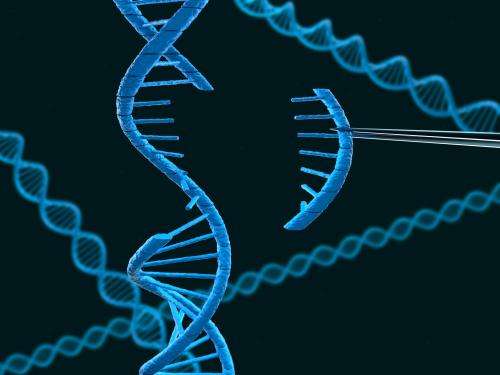Researcher finds diabetes related mutation in Mexican population

A research team directed by Dr. Karol Estrada analyzed genetic sequencing of 8000 Mexicans and found a mutated gene related to diabetes in 30% of mestizos and in half the indigenous population.
The largest genetic study of type II diabetes made between Mexican population has identified a gene present in mestizos (mixed race) and indigenous people of the country that rises five times the likelihood of developing the disease, compared to other populations of the world. The study integrates researchers from the Broad Institute (Harvard University and Massachusettes Institute of Technology), the National Institute of Nutrition and the Institute of Biomedical Research of the UNAM.
The research results were reported in June 2014 in the Journal of the American Medical Association, which notes that the mutated gene called SLC16A11 occurs in 30 percent of the mestizo population and up to 50 percent of the Mexican indigenous.
In this study, the scientist Karol Estrada, who works for the Broad Institute in Boston, directed the genetic sequencing analysis using computational elements.
To locate the gene, the first part of the research of DNA samples of more than eight thousand Mexicans, half of whom live in Mexico City and one in Los Angeles, California were taken; in the second stage just over four thousand attended nationals, with a ratio of 75 percent in the capital and the remaining in the Californian city.

"The collection of samples took a long time, and then, from the genetic information and clinical data began the search of the variant among millions of data generated. Many see it as finding a needle in a haystack, but identifying the gene has been a professional success that satisfies me personally".
"My job is to make the analytical part, and to make sense of what the computer sequencing generated; if Mexican researchers hadn't collected this information I wouldn't have come to this, "says Karol Estrada.
Karol Estrada founded in 2005 the Department of Computational Genomics at the National Institute of Genomic Medicine. In 2012 arrived at the Broad Institute to conduct research in osteoporosis, but what was done in diabetes research caught his eye and decided to integrate a scientific team looking for the gene among the Mexican population; this major study is sponsored by the Consortium SIGMA (Slim Initiative for Genomic Medicine Version).
"Once we had all the data on sequenced DNA it took us a year to process the information and infer the needle in the haystack. We found the gene can develop diabetes MODY (Maturity-Onset Diabetes of the Young), which usually occurs in young people, and in the Mexican population may occur around age 50; then the patient comes to the clinic and is treated for type II diabetes.
"A genetic DNA test could determine the type of diabetes in minutes and from this the treatment to follow, with all the correct dose of treatment to improve the patient's condition. In the second part of the international study a genetic diagnostic tool that costs less than 100 pesos is being developed. It enables us to do the work knowing that it is a single gene variant for the Mexican population and not having to test for many other genes, "says Dr. Karol Estrada.















